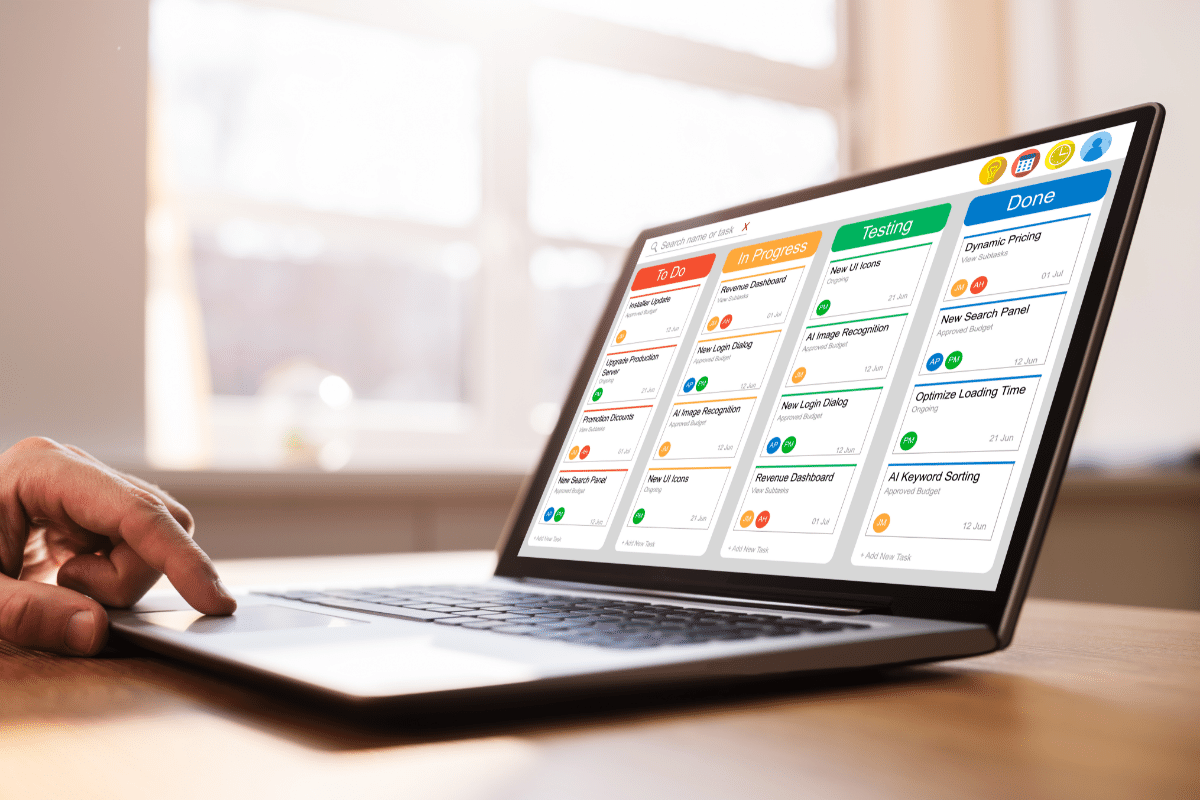Project managers are experts at getting things done. They aren’t the proverbial “idea’s person” that sits in an empty room all day just dreaming up new ideas. They are the people that turn those unformed ideas into real products and solutions.
For complex and expensive projects like those often associated with software products, the process of stewarding development from initiation to distribution can be especially challenging and requires specialized skills and frameworks.
What is Software Project Management?
Project management broadly refers to the use of specialized tools and techniques to ensure projects meet their requirements. Those tools help project managers gain insight into the ongoing status of the projects they are overseeing, including the types and amounts of resources that are being directed towards it and how closely actual progress is tracking to the goals and timelines they are attempting to achieve.
Skilled project management ensures a finished product is delivered not only on-time and on-budget but that the output justifies the cost of development and will generate value for the organization.
Within the software industry, project management is often broken up into two categories: Information System (IS) and Software Product (SP) development. IS is specialized development typically created at the behest of a single client and designed to meet their unique needs. SP refers to the development of software for larger audiences that must operate on many different types of hardware and will see multiple, different use cases.
What Does a Project Manager Do in Software Development?
Software project managers are tasked with coordinating human resources and technological assets to align them towards a shared goal of producing a software product that meets established requirements. Those requirements vary by project but generally codify acceptable metrics and guidelines for:
- Scope
- Quality
- Timelines
- Budget
-End User Satisfaction
Within the software industry there are further requirements specific to the modern process of developing digital products, including establishing:
- Needs Analysis
- Technical Specifications
- Data Models
- Documentation Standards
- Development Platforms
- Testing Practices
- Software Quality Assurance
- Configuration Management
Given the heightened complexity of building digital solutions, software project managers deploy a project management and/or software development platform or process that is a close fit for their resources and needs. Those methodologies are available from a number of sources:
- Project Management Institute
- Microsoft Solutions Framework
- Software Engineering Institute Capability Maturity Model (CMM)
- IEEE
- Rational Unified Process (RUP)
All of the above frameworks are flexible and can be adapted to a variety of workflows. Notably, some software projects are better suited to a waterfall approach, where each phase is dependent on the preceding phase meeting an established criteria for progress to continue.
The Agile Advantage
Waterfall processes might be right for some projects, but modern software is more commonly developed using an agile model where multiple teams work synchronously on independent functions. Agile isn’t a specific methodology so much as an overriding philosophy. The Agile Manifesto, first released in 2001, states the chief values it recommends developers embrace, including:
- Continuous delivery of high quality software
- Openness to change, even late in development
- Preference for speed
- Cooperation between technical and business experts
- Giving teams the resources and autonomy they need to succeed
- Judging progress by the functionality of the product
- Sustainable development practices that prevent burnout
- Simplifying wherever possible
In short, Agile values people over tools, functional software over perfect documentation, end user input over predefined plans, and for processes that are as fast and flexible as they can be.
What Tasks Are Included in a Software Development Project?
Usage cases, product life cycles, stakeholder expectations, and changing market forces all impact the precise makeup of any software project, but generally they all move through a similar pattern:
Planning: Enduser objectives are determined and a statement of work is prepared listing the requirements for the final product and the schedule for development (IS development relies on specific customer requests for planning, whereas SP development is typically based on market research).
Technical Assessment: Software architecture choices are evaluated, interface design is experimented with, risk management (such as contingency planning) is performed, and a final plan is signed off on by stakeholders which records:
- Development strategies
- Quality objectives
- Testing and verification methods
- Documentation standards
- Problem tracking
- Distribution strategies
- Training requirements
Development and Testing: The plan is implemented to generate a minimum viable product (MVP), which is tested to verify functionality and compatibility with a variety of hardware environments and to ensure installation and upgrade paths are operative.
Monitoring: Regular reviews are held to compare the actual progress of each team contributing to the project against the established timeline for completion, with adjustments made in light of changes in the scope of the project, beta tester feedback, new end user requests, or unforeseen and unavoidable delays.
Reporting: Key stakeholders are apprised of the projects’ status throughout the development.
It’s All About Communication
Time management skills, the ability to eke out the maximum benefit from a limited budget, adaptability in the face of obstacles, and technical aptitude regarding the tools and platforms needed to build great software are all, of course, extremely valuable to a project manager. But, one skill above all others ties everything together: communication.
Efficient project management almost always requires a manager that can assertively and respectfully lead a team and make top line priorities unambiguously known and ensure they are responded to with sufficient prioritization. Software project managers are also the line of communication between the project's financial stakeholders and the men and women developing it. In both cases, it is their responsibility to keep all parties informed and aligned in achieving the desired outcome.
Want to work with the best talent to deliver your software product?
Stay connected to the Unosquare blog for more insights on the state of modern software development, and get in touch today if you need added support for your next software project from our experienced and talented agile development professionals.

